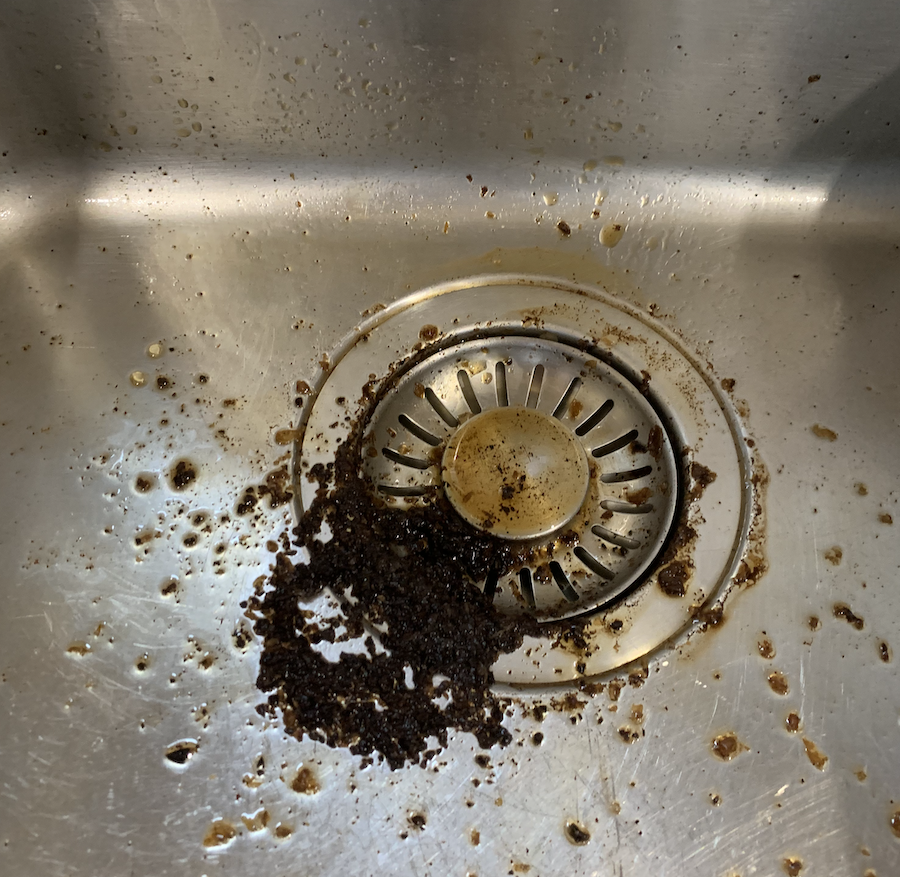Can You Dump Coffee Grounds Down the Sink? - Important Considerations
Can You Dump Coffee Grounds Down the Sink? - Important Considerations
Blog Article
The article below relating to What are the consequences of putting coffee grounds is unquestionably enjoyable. Don't miss out on it.

If you're an enthusiastic coffee drinker, you could be questioning the best method to take care of your coffee grounds. While it may seem hassle-free to clean them down the sink, this practice can result in several problems for both your plumbing and the atmosphere. In this short article, we'll discover whether it's secure to put coffee premises down the sink and go over alternative disposal methods to consider.
Alternatives to Disposing of Coffee Grounds
Trash Disposal
If you don't have a composting setup, another option is to simply toss your coffee premises in the garbage. Make certain to secure them in a compostable bag or container to avoid odors and leakage. While this approach does not provide the same ecological advantages as composting, it's a risk-free and convenient means to take care of coffee premises.
Composting
One environment-friendly option for dealing with coffee premises is to compost them. Coffee grounds are abundant in nitrogen, making them an outstanding enhancement to compost heap or containers. As they break down, they add nutrients to the dirt, enhancing its fertility and texture.
Threats of Putting Coffee Grounds Down the Sink
Plumbing Issues
Among the main concerns with getting rid of coffee grounds down the sink is the threat of blocking your pipes. Coffee grounds don't dissolve in water and can accumulate with time, developing a dense sludge that can obstruct drains and bring about costly plumbing repairs.
Environmental Impact
Past the prospective damages to your plumbing, putting coffee premises down the sink can also hurt the setting. When washed right into the sewer system, coffee grounds can contribute to clogs in sewage system lines and treatment facilities. Furthermore, the high focus of organic matter in coffee grounds can deplete oxygen levels in rivers, adversely influencing marine life.
Tips for Proper Disposal
Regular Maintenance
Regardless of how you select to throw away your coffee premises, it's vital to keep your plumbing regularly. Schedule routine drainpipe cleansings to eliminate any kind of accumulation and ensure that your pipes continue to be clear and free-flowing.
Utilize a Sink Strainer
To stop coffee grounds from entering your sink's drain to begin with, consider utilizing a sink filter. These affordable gadgets catch solid particles, including coffee premises, stopping them from causing clogs.
Final thought
While it might be appealing to clean coffee premises down the sink for benefit, doing so can have serious repercussions for your plumbing and the atmosphere. Rather, think about composting your coffee premises or getting rid of them in the garbage. By embracing accountable disposal methods, you can enjoy your coffee guilt-free while minimizing your ecological impact.
Coffee Grounds Down The Drain: Are They OK?
Can Coffee Grounds Go Down the Sink?
You may be thinking, “But I pour them down the sink drain every day and I’ve never had a clogged drain!” You see, coffee grounds come from coffee beans, which are virtually rock hard by the time they’re ground and brewed. You certainly wouldn’t want to grind up the pit from a peach, apricot, or nectarine that is about just as hard because they wouldn’t break down like other foods, and it’s the same with coffee beans!
If you usually grind coffee beans in the garbage disposal because it seems the cleanest and convenient, we don’t fault you for that. And anyone who has ever had to clean up the trash with spilled coffee grounds after a dog got into it would understand the rationale. Unfortunately, coffee grounds do not break down in water, so instead of grinding up and washing away as normal foods do in a garbage disposal, they clump together and as time goes by, the grounds can form a clump and pack the drain until it develops a clog.
What to Do With Coffee Grounds
So, what do you do with coffee grounds if you can't put them down the drain? You could of course just throw them in the garbage, but we encourage you to give these practical uses for them a try!
Since coffee grounds contain key minerals for plant growth, you can use them to fertilize your garden. Coffee grounds not only fertilize gardens because they are mineral-rich, but they are also great at absorbing contaminants in the soil, particularly heavy metals. Coffee grounds are said to attract worms, which help gardens flourish. You can use coffee grounds as fertilizer by sprinkling them around your plants. You can compost your coffee grounds and use them at a later time. Coffee grounds are great insect repellents when you place them in bowls or sprinkle them around the areas you want to repel insects. To remove fleas from your dog or cat, simply shampoo your pet then rub coffee grounds throughout their fur. Rinse them off and dry as usual. Like baking soda, used coffee grounds can eliminate odors. You can place them in a bowl in the fridge and let them do the work! Mix coffee grounds with coconut oil for a wonderful face or body scrub, or to reduce the appearance of cellulite. https://www.wintershomeservices.com/blog/2019/august/coffee-grounds-down-the-drain-are-they-ok-/

Do you enjoy more info about Can Coffee Grounds Go Down the Drain or Sink?? Put a comment further down. We will be pleased to know your feelings about this blog posting. In hopes that you visit us again in the near future. Sharing is caring. Who knows, you might be helping someone out. We take joy in reading our article about Can You Put Coffee Grounds in the Sink Garbage Disposal?.
Free Quote Report this page